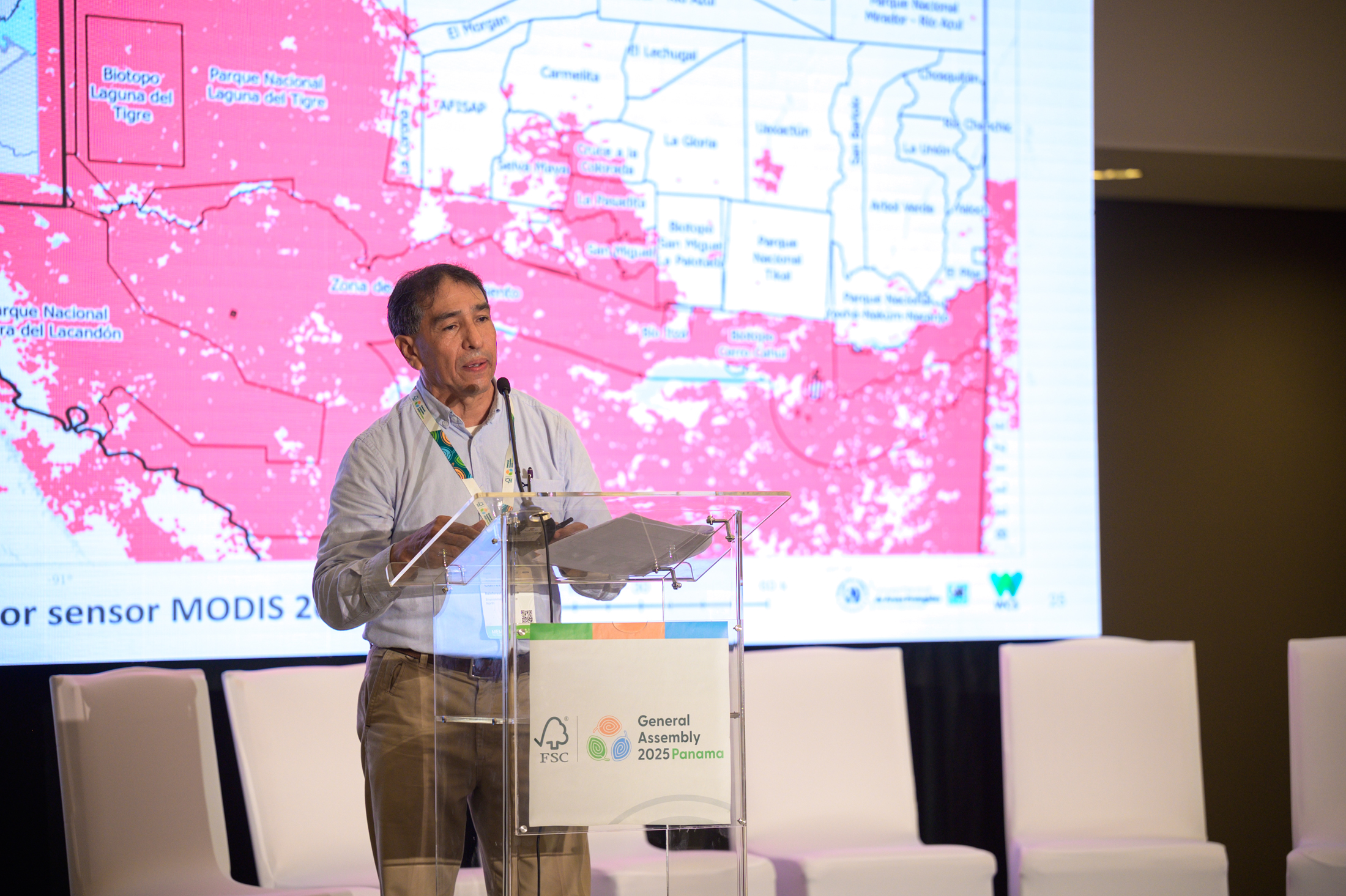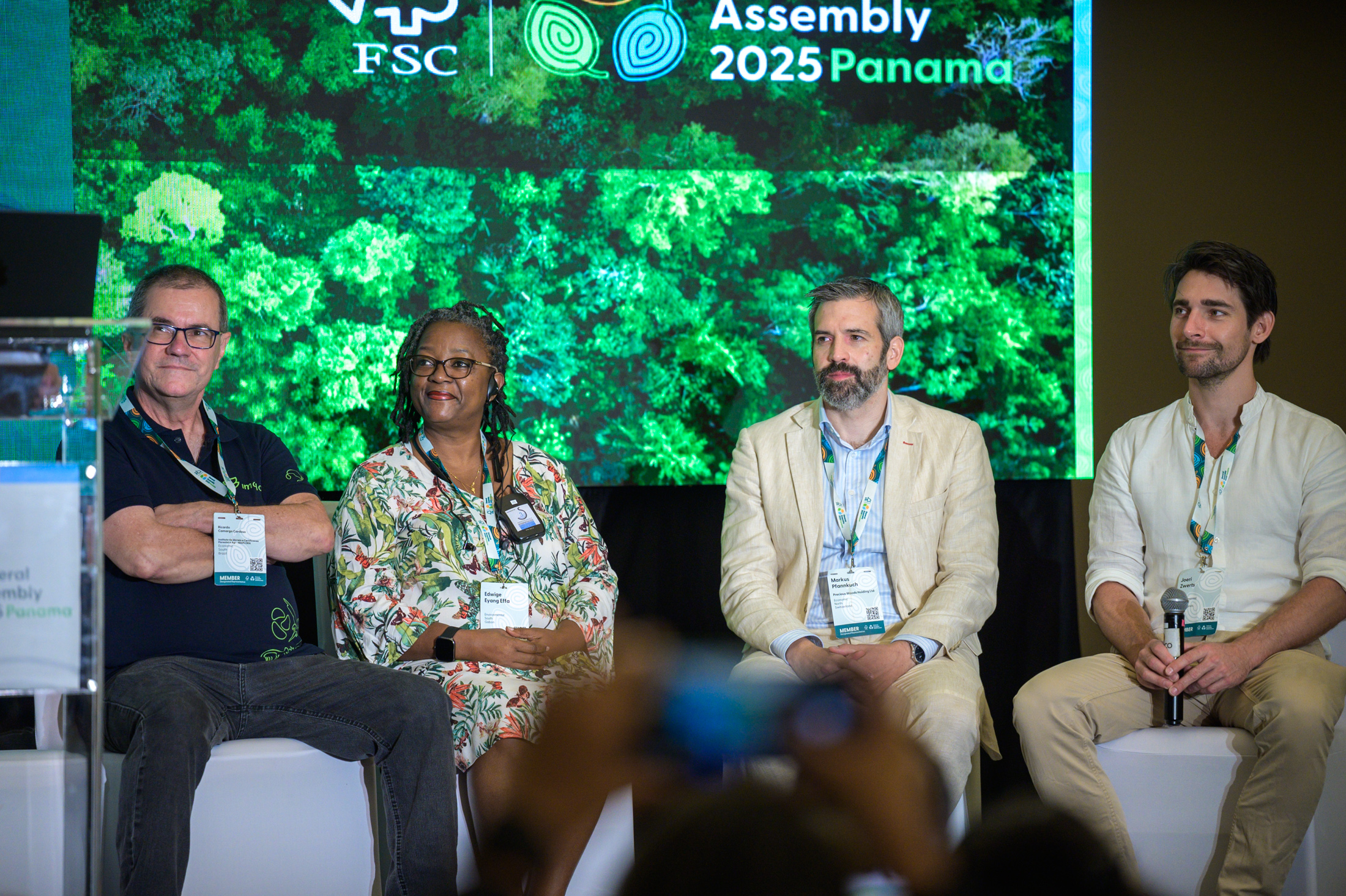At a session co-organized by ATIBT and Rainforest Alliance, forest managers, researchers, and environmental experts particularly from the Global South came together to reflect on lessons from tropical forest regions and explore how FSC can stay relevant amid evolving ecological, social, and market realities.
Over the past 30 years, FSC certification has helped promote sustainable forest management (SFM) in tropical natural forests across Africa, Latin America, and Southeast Asia. Yet SFM remains widely misunderstood and is often misrepresented or conflated with deforestation. The certification of tropical forests has also faced technical, economic, and reputational challenges.
30 years of sustainable tropical forest management
Caroline Duhesme, Strategy and Innovation Director at ATIBT, started off the session by sharing experiences from the past 30 years of sustainable forest management in the forests of the Congo Basin. Certification, she said, remains vital to ensuring that social and environmental standards are met in regions where governance can be weak. Yet, challenges persist.
“Certification in the Congo Basin is expensive because we are in countries where infrastructure is lacking, so forest managers have to invest more to comply. Paradoxically, the market for certified wood does not sufficiently reward these efforts,” she explained.
Even so, sustainably managed tropical forests remain essential to climate, biodiversity, and local livelihoods—calling for certification systems better adapted to local realities.
José Román Carrera, Global Forest Director at Rainforest Alliance, reflected on three decades of community forest concessions in Guatemala’s Maya Biosphere Reserve and their link to FSC certification. He highlighted how the community-managed concession model, launched in the 1990s, has proven effective in conserving biodiversity while sustaining livelihoods.
“Scientific evidence shows that the next harvest volume in the following exploitation cycle can be as good as, or even better, than the first one.”
However, Carrera also emphasized ongoing challenges, particularly around access to stable markets and long-term partnerships for both timber and non-timber forest products.
Reflections from the panel
In the panel discussion that followed, Joeri Zwerts, Researcher at Utrecht University, addressed the need for continued research on forest regeneration and long-term sustainability in terms of yield in tropical forests. He cautioned that enrichment planting can be less useful and costly but pointed to other silvicultural interventions that are more interesting, such as liana-cutting, to support regeneration.
Markus Pfannkuch, Co-Chief Officer at Precious Woods, reflected on the operational impact of FSC certification in tropical forestry. “The most important point is the reduction of the impact from construction,” he said explaining that in non-certified concessions, roads are often much wider than in certified ones.
Pfannkuch also pointed to a technical limitation faced by forest operators, which is the lack of suitable harvesting equipment. “We are not flexible in which machine to choose,” he explained, noting that access to better, lighter machinery would further reduce environmental impact and improve efficiency in certified tropical operations.

Edwige Eyang, environmentalist and researcher from Gabon, reflected on how FSC certification has improved both social and environmental practices in the Congo Basin. She highlighted how certification has led to stronger recognition of community rights and more inclusive management of forest resources.
On the environmental side, she described how certified concessions now include protected areas for key species such as great apes and elephants, contributing to biodiversity conservation.
Ricardo Camargo, ESG Manager at Imaflora, described FSC’s transformative role in helping both companies and communities operate sustainably. “FSC created conditions for companies and communities to grow, to start producing in a sustainable way. This is an achievement that has no price,” he said. He warned, however, that “we need more markets to increase the demand for tropical timber.”
The discussion concluded with a call for renewed collaboration among FSC, governments, and the private sector to secure the future of tropical forests.


